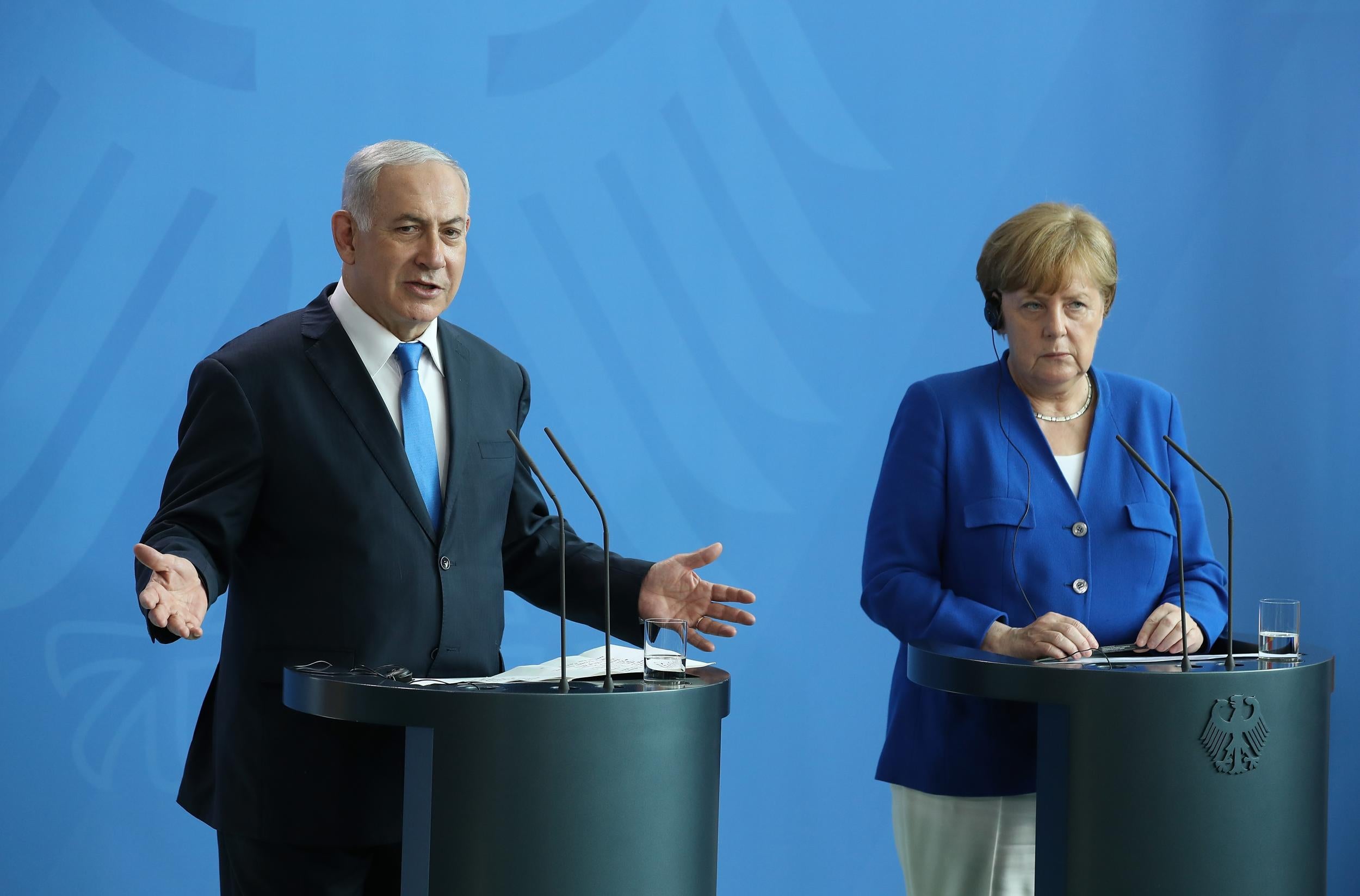Israel’s Benjamin Netanyahu flies to Europe to lobby May, Macron and Merkel against Iran nuclear deal
EU allies have been staunch defenders of the deal

The prime minister of Israel has embarked on a three-day trip to Europe to lobby national leaders against the Iran nuclear deal, which he opposes.
Benjamin Netanyahu flew to Berlin for talks with Angela Merkel on Monday, and will travel to Paris on Tuesday to meet with Emmanuel Macron before coming to Britain on Wednesday for discussions with Theresa May.
The EU’s three biggest economies, along with the European Union in its own right, are signatories to the Joint Comprehensive plan of Action – and all have signalled that they strongly support maintaining the deal.
Speaking ahead of the visit, Mr Netanyahu said: “I will meet there with three leaders and will discuss two subjects: Iran and Iran.”
Donald Trump, the US president, pulled his country out of the agreement to reduce Iranian nuclear stockpiles and activity in exchange for the lifting of sanctions, but the European allies – as well as China and Russia – have said they will continue with the deal.
Mr Netanyahu is also expected to raise Iran’s wider influence in the region, such as its intervention in Syria on the side of the Assad regime. He may receive a more positive response from leaders on this issue, as British diplomats have said they are open to concerns about Iran’s activities.
At a joint press conference with Mr Netanyahu in Berlin on the first day of the trip, the German Chancellor said said she agreed Iran’s activities in the Middle East were a concern.

“We agree that the question of Iran’s regional influence is worrying, especially for Israel’s security,” she said.
The EU has announced it is looking at ways to counteract re-imposed US sanctions against Iran that might hit EU firms doing business with the Islamic Republic. The UK, France and Germany responded to Mr Trump’s withdrawal from the deal by expressing “regret and concern”, while the European Commission said the deal was an international agreement that could not be cancelled only by the US.
Israel’s intelligence agency Mossad says it has obtained secret files showing Iran wants to build a nuclear weapon, and Mr Netanyahu says his country will share some of the documents with the intelligence services of the UK, Germany, and France.
However, Israel has repeatedly made such claims, including in a presentation ahead of Mr Trump’s decision to pull out of the deal – which was widely derided by analysts as providing no new or current information.
The International Atomic Energy Agency, the international body tasked with enforcing the Iran nuclear deal, which was signed by Barack Obama on behalf of the US, has repeatedly said Iran is sticking to its side of the bargain.
The Foreign Secretary Boris Johnson and his European counterparts met with Iran’s foreign minister in Brussels last month to discuss how to safeguard the deal.
Join our commenting forum
Join thought-provoking conversations, follow other Independent readers and see their replies
Comments
Bookmark popover
Removed from bookmarks